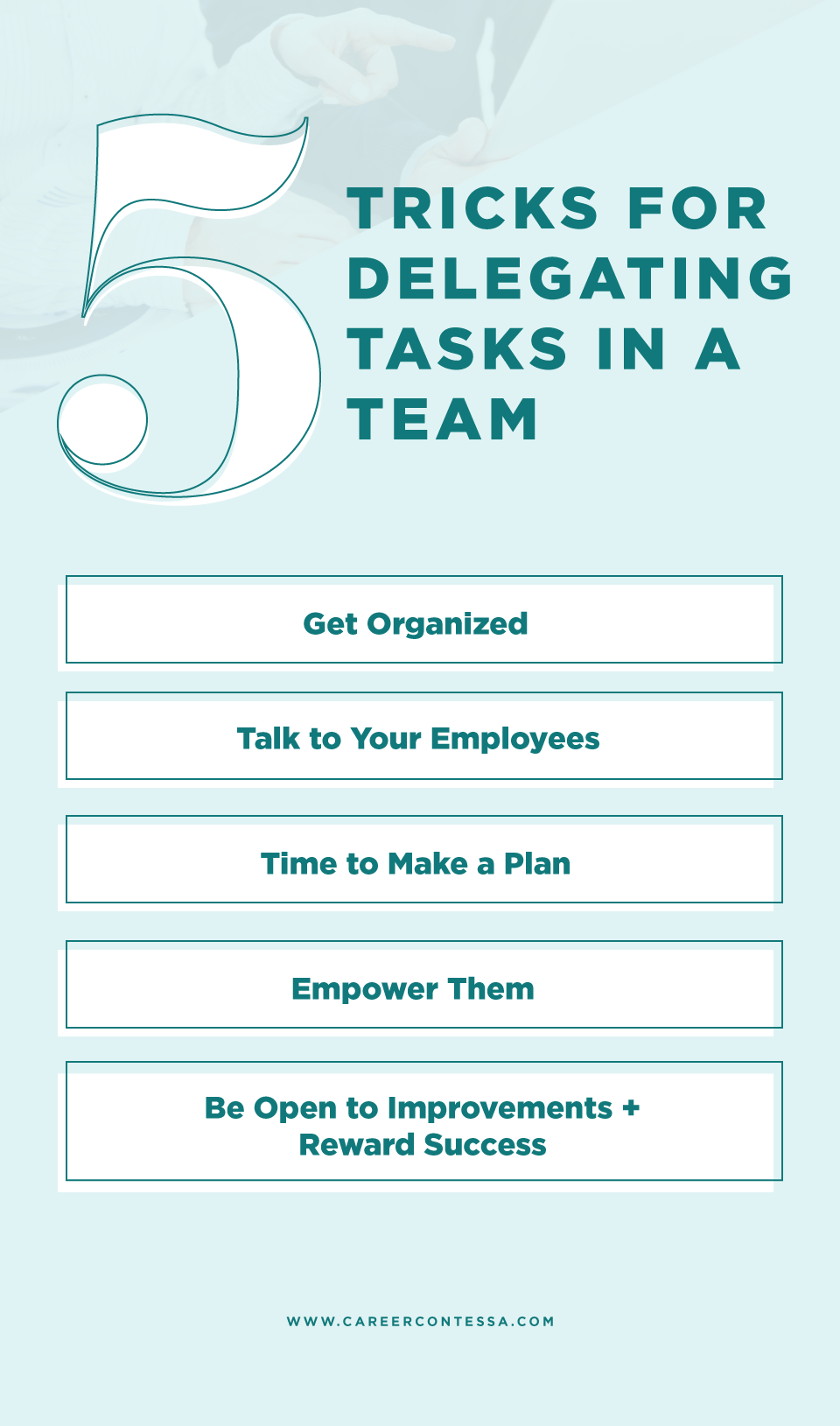You’ve got a great team, but there’s lots to be done, and some of it isn’t pretty. How do you decide who does what without demotivating or overloading?
Remember those early years when you were juggling countless responsibilities on your own with only your boss to answer to? You did alright. So alright, in fact, that you’ve evolved into a boss yourself.
These days you’re hiring or overseeing team members who support you, and you can’t remember what it was like when you were doing things on your own. Well, almost can’t remember. Work is still piling up, and you need to figure out a plan for delegating key items on your plate. The risk of relinquishing control? More like “risks.”
In your rush to make your own job easier, choosing the wrong task to delegate can overload your team,
leading to burnout and resentment. There’s also the risk that after delegating, you keep too close an eye on your team’s work, defeating the purpose of assigning tasks in the first place. (It’s a lot easier to
become a micromanager than it seems!) And finally, if your team members all hold the same level of seniority, you have to make sure that you evenly distribute tasks without piling too much “grunt work” on one person.
Clearly, there are a lot of things that could go wrong, even if your intentions are good. So what should you do to properly assign duties and tasks to your team? Here are five key steps to make you sure you've set your team up to work smarter, not harder:
1. GET ORGANIZED
One of the biggest mistakes
new managers can make is to assign work on a one-off basis without gaining a holistic understanding of what needs to be done for the team to be successful. While this piecemeal approach can be a good way to get things done in the short-term or to meet sudden deadlines, it’s best to have a longer-term plan for how your team will manage its work.
Conduct a Team Inventory
The first step? Even before you hire your team, inventory everything you work on. If you're having trouble remembering what you do all day, consider using a
productivity app to get a handle on how you’ve been spending your time. (Note: you'll want to do an inventory any time you bring new members on.)
Conduct a Person-by-Person Inventory
Next, document what each member of your team is working on to the best of your ability. Remember that this list is just a starting point—you'll need to speak with them directly about what they tackle every day. Even the best managers overlook something.
2. TALK TO YOUR EMPLOYEES
The next order of business is to sit down with your team—first individually and then as a group.
The goal for the individual sessions is to
have an open dialogue about each employee's work. Ask them to describe their workload. Then ask which tasks they've enjoyed and which they haven't.
Head Back to Your Inventory and Tweak It
Once you’ve met with each person, look back on the inventory you created and complete a few key steps:
- Review your initial assessment of the team’s workload and update it based on what you’ve learned
- Look for overlaps in your team's most and least preferred tasks. The goal here is to determine which tasks Employee A hates that Employee C doesn’t mind
- Last, look back at your personal workload and figure out what makes the most sense for you to delegate. Consider two deciding factors when choosing what to delegate. 1 You recognize it as an unproductive use of your time or 2. You see it as a growth opportunity for your employees based on their interests.
3. TIME TO MAKE A PLAN
After you’ve finished your analysis, you should have everything you need to create a clear working plan for the team. Using a project management system such as
Basecamp, create one-time and recurring tasks for everyone,
including you.
Then, meet with your employees again and walk them through your individual and group plans. Stress that everyone will be handling mundane or administrative tasks assigned based on their preferences. For any new responsibilities, provide them with clear, step-by-step directions for getting started. They should walk away knowing both your vision for the future and your expectations for their day-to-day work.
4. EMPOWER THEM
Even after walking through the plan, there's one more crucial step to ensure your team’s success. Think about the resources—whether that means technology, budget, or internal staff—your team will need to complete each task and make sure they're readily available to them, along with giving them any necessary access or permissions to software, files, or workspaces. For work to get done well, you need to open doors for your employees.
5. BE OPEN TO IMPROVEMENTS + REWARD SUCCESS
It’s easy to forget that just because a job is getting done, it’s not necessarily worth doing. In other words, many managers get caught in the trap of assuming that every task they assign is important.
Don’t allow yourself to get complacent. Remember that being a manager means periodically evaluating workloads to ensure that the team is focusing on things that actually matter. It also means
being open to (and even encouraging) feedback from your employees on process and procedure. What better sign of successful leadership than your team being excited to share better ways of working with you?
Last but not least, be sure to have a system in place to
reward great performance and proactive thinking. Your employees work hard to help the team be successful, and when you make your appreciation well-known, you just motivate them to take on even more.












